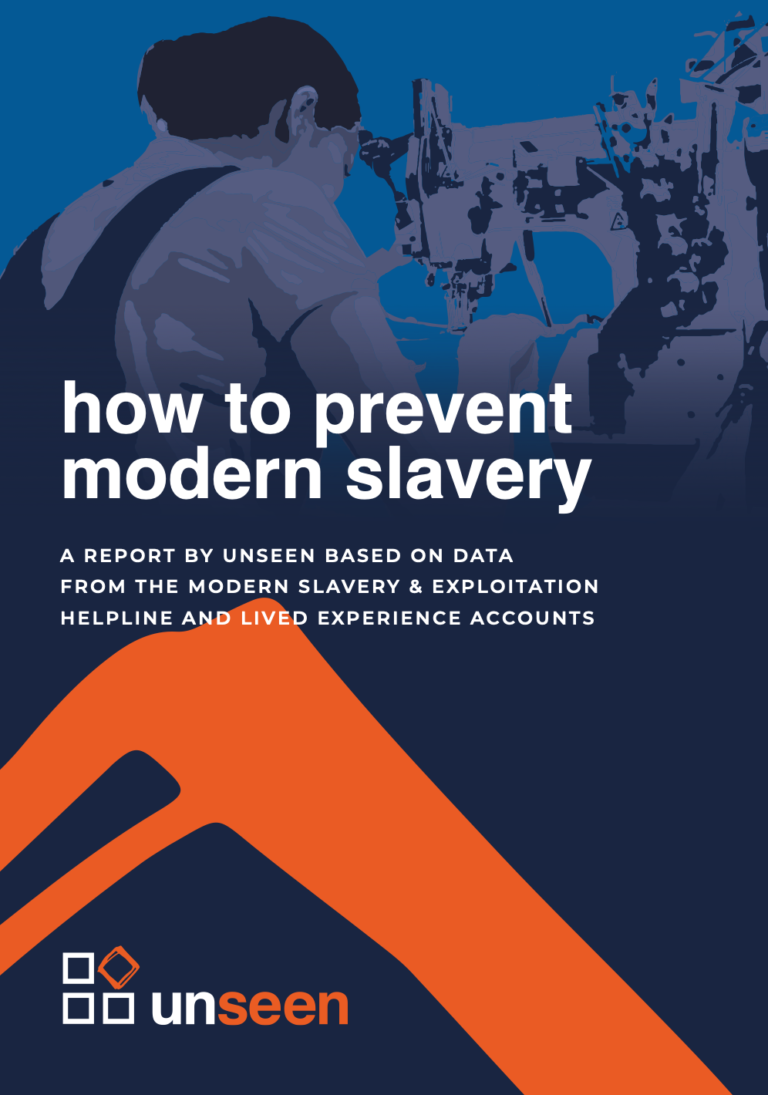In 2021, the number of people referred to the UK Government’s system of identification and support, the National Referral Mechanism (NRM), stood at 12,727. Of those, only 2,866 were given a Positive Conclusive Grounds decision, confirming their status as a victim of modern slavery.
In addition, there have only been a handful of convictions in the UK, just 259 charged by the Crown Prosecution Service during 20201, which means that many of the perpetrators of these despicable crimes are never brought to justice. Despite UK Government estimates in 2014, putting the scale of modern slavery in the UK at around 10,000-13,000 potential victims, many think the true number is much higher, at around 100,000.
Much about the methodologies and tactics used to recruit and hold people in modern slavery is still unclear, and this report seeks to better understand these, by analysing data collated through Unseen’s Modern Slavery & Exploitation Helpline and survivor accounts. Understanding more about the push and pull factors that result in exploitation can help us develop robust prevention strategies to stop exploitation from
occurring in the first place.

